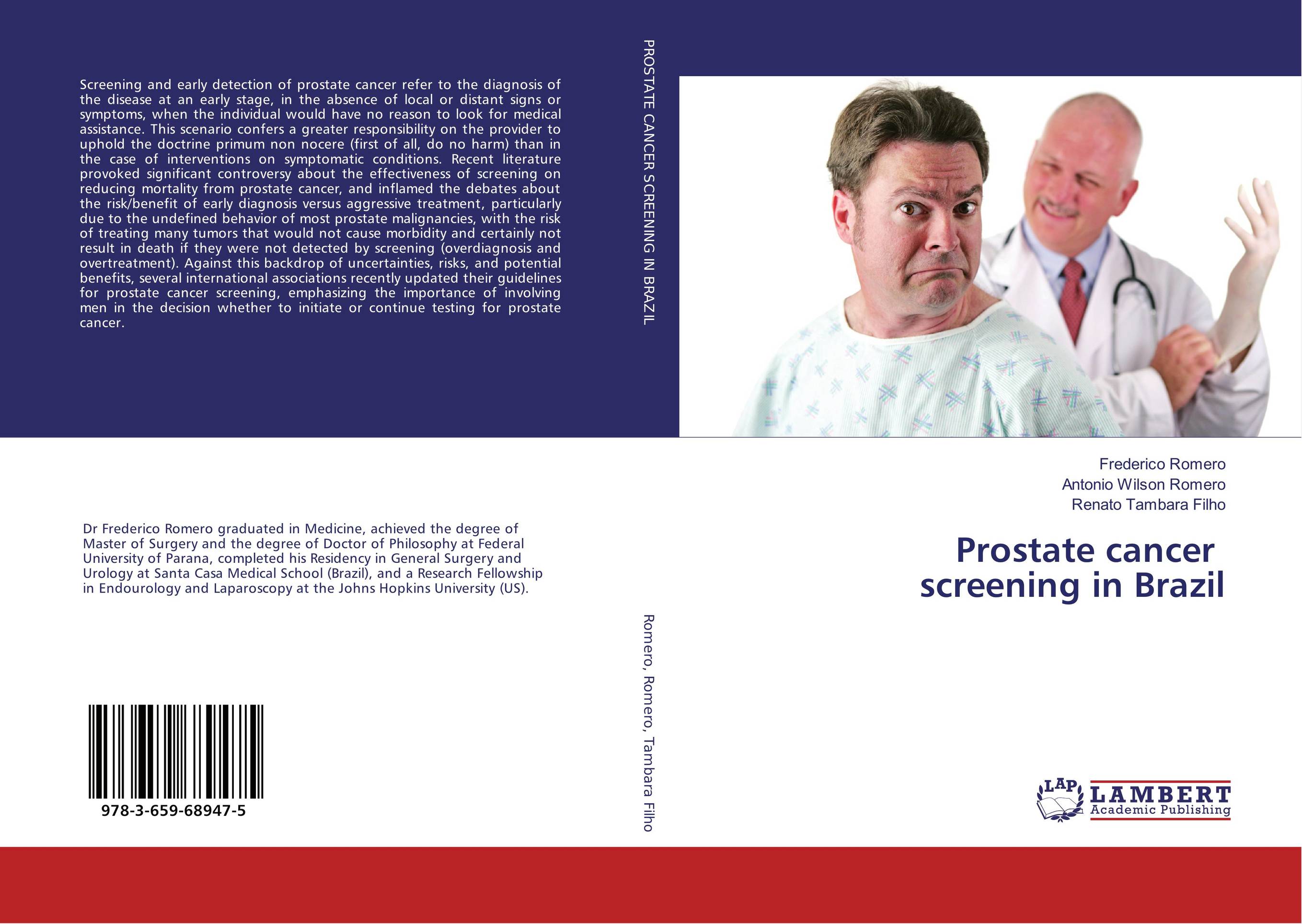| Поиск по каталогу |
|
(строгое соответствие)
|
- Профессиональная
- Научно-популярная
- Художественная
- Публицистика
- Детская
- Искусство
- Хобби, семья, дом
- Спорт
- Путеводители
- Блокноты, тетради, открытки
Prostate cancer screening in Brazil.

В наличии
| Местонахождение: Алматы | Состояние экземпляра: новый |

Бумажная
версия
версия
Автор: Frederico Romero,Antonio Wilson Romero and Renato Tambara Filho
ISBN: 9783659689475
Год издания: 2017
Формат книги: 60×90/16 (145×215 мм)
Количество страниц: 232
Издательство: LAP LAMBERT Academic Publishing
Цена: 43838 тг
Положить в корзину
| Способы доставки в город Алматы * комплектация (срок до отгрузки) не более 2 рабочих дней |
| Самовывоз из города Алматы (пункты самовывоза партнёра CDEK) |
| Курьерская доставка CDEK из города Москва |
| Доставка Почтой России из города Москва |
Аннотация: Screening and early detection of prostate cancer refer to the diagnosis of the disease at an early stage, in the absence of local or distant signs or symptoms, when the individual would have no reason to look for medical assistance. This scenario confers a greater responsibility on the provider to uphold the doctrine primum non nocere (first of all, do no harm) than in the case of interventions on symptomatic conditions. Recent literature provoked significant controversy about the effectiveness of screening on reducing mortality from prostate cancer, and inflamed the debates about the risk/benefit of early diagnosis versus aggressive treatment, particularly due to the undefined behavior of most prostate malignancies, with the risk of treating many tumors that would not cause morbidity and certainly not result in death if they were not detected by screening (overdiagnosis and overtreatment). Against this backdrop of uncertainties, risks, and potential benefits, several international associations recently updated their guidelines for prostate cancer screening, emphasizing the importance of involving men in the decision whether to initiate or continue testing for prostate cancer.
Ключевые слова: age, diagnosis, risk factors, Mass screening, race/ethnicity



